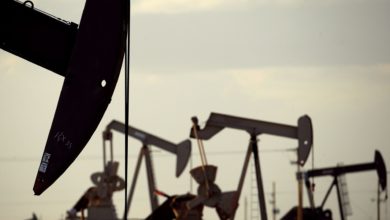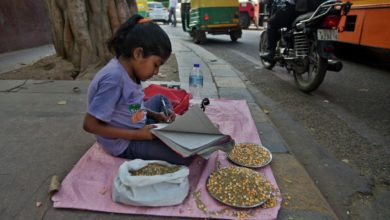‘Terrible Predicament’: Pakistani Villager Shares Why Locals Are Turning to Crime & Drugs
Pakistani farmers harvest and collect their crop in suburbs of Islamabad, Pakistan, Tuesday, April 30, 2019.

 Aneela RashidPakistan has been hit by its worst humanitarian crisis in the past decades, with raging floods that displaced millions of people, and yet there are millions more who have been affected indirectly by the disaster.The relentless monsoon rains and floods have not only badly damaged Pakistan’s infrastructure, crops and fertile lands, but also destroyed people’s homes and livelihoods, forcing them to struggle to survive.Another tragedy is over one million livestock and cattle killed by the floods and Lumpy Skin disease, threatening to trigger food shortages. For a village to lose animals is a real tragedy because for many families it is a complete loss of income. This grim development is likely to cause shortages of meat, milk, and other dairy products in a country already facing a threat of food insecurity.Meanwhile, millions of Pakistanis who were not directly affected by the floods have been still hit by the economic and social repercussions that the disaster has brought: loss of homes and rising inflation have prompted millions to migrate in search of earnings, triggering a mass exodus from rural to urban areas.
Aneela RashidPakistan has been hit by its worst humanitarian crisis in the past decades, with raging floods that displaced millions of people, and yet there are millions more who have been affected indirectly by the disaster.The relentless monsoon rains and floods have not only badly damaged Pakistan’s infrastructure, crops and fertile lands, but also destroyed people’s homes and livelihoods, forcing them to struggle to survive.Another tragedy is over one million livestock and cattle killed by the floods and Lumpy Skin disease, threatening to trigger food shortages. For a village to lose animals is a real tragedy because for many families it is a complete loss of income. This grim development is likely to cause shortages of meat, milk, and other dairy products in a country already facing a threat of food insecurity.Meanwhile, millions of Pakistanis who were not directly affected by the floods have been still hit by the economic and social repercussions that the disaster has brought: loss of homes and rising inflation have prompted millions to migrate in search of earnings, triggering a mass exodus from rural to urban areas.
Sputnik contacted one such migrant, Sher Ali, who left his village and came to Lahore in search of work. He is now employed as a cook at a house and sends his monthly salary to support his family back in the village.
Sher Ali, who comes from a village in Arif Wala in the district of Pakpattan, told Sputnik that this year has been extremely tough on his family.© Sputnik / Aneela RashidSher Ali from PakPattan, a residential cook in Lahore Sher Ali from PakPattan, a residential cook in LahoreAli had saved some money and was using it to raise a cow in his village for the past year, to help his family earn money by selling milk. But then tragedy struck and his beloved animal succumbed to a viral disease.Due to their limited resources and no veterinary clinic nearby, the family could not save the poor animal.
Sher Ali from PakPattan, a residential cook in LahoreAli had saved some money and was using it to raise a cow in his village for the past year, to help his family earn money by selling milk. But then tragedy struck and his beloved animal succumbed to a viral disease.Due to their limited resources and no veterinary clinic nearby, the family could not save the poor animal.
"My village is far from any town. The people there don't have any work or means to earn a living. Some families that are a little better off are involved in agriculture. Others make ends meet by raising cattle and selling milk. This year our village suffered a terrible fate because all the animals got sick, they developed large boils, which got infected and the animals perished. This is a huge loss for my village," Ali said.
He went on to explain that everywhere around the village there were dead animals lying on the ground, and if one of them got sick, it would infect all the others.”Had there been a treatment for this illness in our area, many animals could have been saved,” Ali explained, adding that the virus and the recent floods, that are causing more diseases to spread, left villagers afraid to buy more livestock.”In any case, at present, villagers are unable to purchase an animal because it’s expensive, but even those who can buy by borrowing some money, will not take such a risk because they are afraid that the animal might die again,” Ali explained.Talking about how people are dealing with the unprecedented inflation and destruction of crops in his province, he said that villagers are feeling hopeless.
"Currently poor people of my village and the surrounding area are turning to crime. Some of them have become thieves and looters. They are now on a bad path and some have turned to drugs and alcohol. Due to extreme poverty they have no way out, they have no solution to their problems. All they can do is worry. What can they do? They have no savings and no job opportunities. They don't have any property that they could sell and make something out of it. All they have is small houses where the whole family resides," Ali remarked.
What’s more, due to the current food shortages and lack of income, many families in the village have literally no food in their homes.”They are suffering from extreme poverty. Some lucky few who have a surviving animal are managing by selling milk to nearby areas. Others who have a bigger animal, sell it to buy a smaller one, but most of the people are in a terrible predicament,” the cook shared.
"Whatever Allah has destined for them, they are just putting up with it," Ali added thoughtfully.
 WorldSoaring Energy Prices Force Pakistani Industrialists to Close Businesses20 September, 14:57 GMTThe immigrant also told Sputnik that there is no decent doctor for miles round, while medical help in general is hard to get, because there are no proper clinics in his village.”Doctors are not good in our area. In every village there is just one or two doctors, who are incompetent. The maximum that these doctors can do is give some tablets or injections, but they have no equipment, nothing to run proper tests with. If you go to them they just ask, ‘what’s wrong with you?'” Ali shared.”If one comes across a doctor who is a “serious man,” he will directly say that ‘you should go to Sahiwal or Lahore (big cities) for treatment.’ “These doctors are just ‘time pass’ doctors they are not good,” he added.”There have been cases in which such doctors prescribed a wrong injection and it killed a patient.”According to the cook, if a person in their family gets really sick, they have to arrange a rental car and take the patient to a big city, with the closest one still many hours away.”As far as animal hospitals are concerned, there are none in my village. I have not seen or heard about any animal doctor in my area. In the whole district of seven or eight villages, there must be just one vet and even then you have to call him for many days, asking to visit your home and help your animal. He keeps saying, ‘I will come, I will come’ but by then, it is too late and the animal has died,” Ali said.
WorldSoaring Energy Prices Force Pakistani Industrialists to Close Businesses20 September, 14:57 GMTThe immigrant also told Sputnik that there is no decent doctor for miles round, while medical help in general is hard to get, because there are no proper clinics in his village.”Doctors are not good in our area. In every village there is just one or two doctors, who are incompetent. The maximum that these doctors can do is give some tablets or injections, but they have no equipment, nothing to run proper tests with. If you go to them they just ask, ‘what’s wrong with you?'” Ali shared.”If one comes across a doctor who is a “serious man,” he will directly say that ‘you should go to Sahiwal or Lahore (big cities) for treatment.’ “These doctors are just ‘time pass’ doctors they are not good,” he added.”There have been cases in which such doctors prescribed a wrong injection and it killed a patient.”According to the cook, if a person in their family gets really sick, they have to arrange a rental car and take the patient to a big city, with the closest one still many hours away.”As far as animal hospitals are concerned, there are none in my village. I have not seen or heard about any animal doctor in my area. In the whole district of seven or eight villages, there must be just one vet and even then you have to call him for many days, asking to visit your home and help your animal. He keeps saying, ‘I will come, I will come’ but by then, it is too late and the animal has died,” Ali said.
"There is no proper solution, not for the people and none for the animals," he concluded.
Sher Ali’s story is just one example out of millions of other Pakistanis in need of help: there are many other cities, towns and villages in the same dire situation.So, the question remains whether the promises given by international donors materialize and proper financial aid will be provided to the people of Pakpattan and other small towns and villages across the country.





